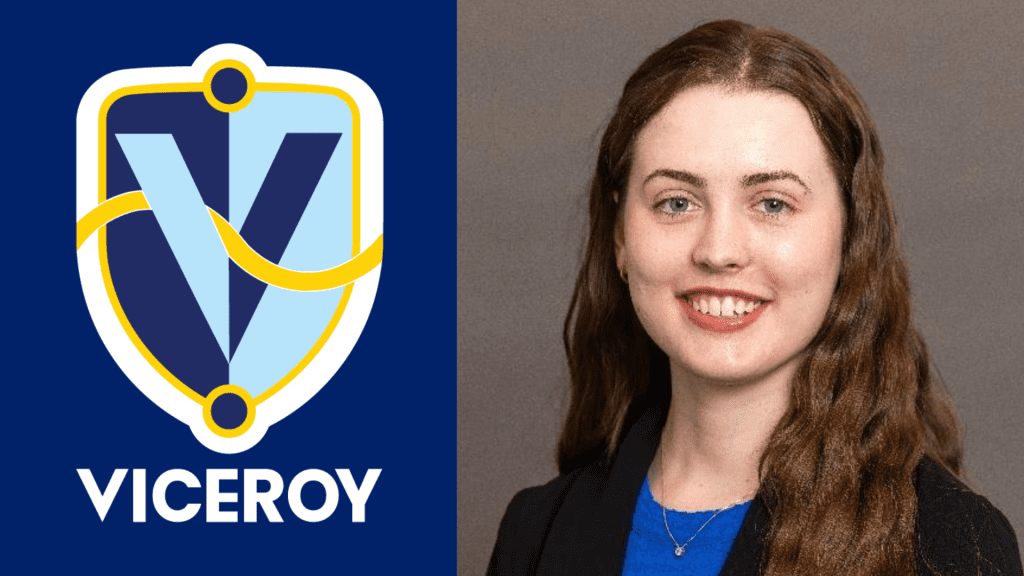By Brianna Bace
Hi everyone, my name is Brianna Bace. I attended the University at Albany, where I earned a bachelor’s degree in emergency Preparedness, Homeland Security, and Cybersecurity (EHC), alongside a second major in Political Science. I also completed a master’s in public administration with a focus on cybersecurity in 2024.
My interest in cybersecurity began during my freshman year after taking an introductory course required for my EHC major. Before that class, my focus was primarily on homeland security—I honestly didn’t know much about cybersecurity and didn’t anticipate taking any additional courses beyond the requirement. But that course quickly captured my interest, especially in areas like cyber risk management, threat actor analysis, and the impact of emerging technologies on national security.
At first, I struggled to figure out how to combine my passion for political science and policy with my growing interest in cybersecurity. Like many, I initially assumed that a career in cybersecurity required a background in computer science or highly technical skills. Fortunately, my cybersecurity professor encouraged me to apply for the VICEROY Program. It turned out to be the perfect opportunity.
Through the program, I was able to dive deeper into cybersecurity coursework, build technical knowledge, conduct policy-focused cyber research, and gain a broader understanding of the field. The summer before my senior year, I joined the first cohort of the University at Albany/FIU chapter of the VICEROY Program.
As a VICEROY Scholar, I became a more well-rounded cyber professional, developing both technical and non-technical competencies. I took three cybersecurity courses, including one on cyber threat intelligence, attended bi-weekly seminars featuring speakers from organizations such as The MITRE Corporation, national laboratories, and the Army Cyber Institute, and received a free exam voucher for the CompTIA Security+ exam—which I ultimately passed.
What had the most impact on me, however, was my involvement in cybersecurity research. Through the program, I completed two research projects that deepened my understanding of current cyber issues, as well as the evolving landscape of cyber policy and law. I presented at multiple conferences and eventually published my work in peer-reviewed journals. This was my favorite part of being a VICEROY Scholar—collaborating on meaningful projects with fellow Scholars and receiving travel support to attend conferences in cities I had never visited.
One highlight was presenting at the VICEROY Annual Showcase in San Antonio, TX. When I wasn’t at the conference, I explored the River Walk and the Alamo. I also presented at the Society for Risk Analysis’ Annual Conference in Washington, D.C., where I visited the National Gallery of Art and the Smithsonian National Museum of Natural History. I attended the Military Cyber Professionals Association’s HAMMERCON in Laurel, Maryland, as well.
Additionally, I had the chance to participate in the Cyber 9/12 Strategy Challenge in New York City hands-on, an immersive experience that was incredibly rewarding. My team acted as cyber analysts, drafting intelligence briefs and presenting policy recommendations to a mock National Security Council in response to a fictional national-level cyber incident. This competition was one of the most valuable experiences of my college career.
Now, as a postgraduate, I can confidently say that the VICEROY Program has greatly shaped my career path. It equipped me with essential hard and soft skills that continue to support my professional development. The coursework and research kept me up to date on the most pressing issues in cybersecurity and taught me to approach cyber as an interdisciplinary field. Most importantly, my published research in cyber policy and law has provided a solid foundation for my goal: to become a cyber lawyer.
Next year, I plan to attend law school. I hope to help apply existing legal frameworks to the cyber domain and contribute to the development of new laws that will deter cyber threats and improve national resilience. Public service has always been important to me, and I aspire to work for the government—contributing to national defense and public policy.
I am thrilled to be part of the VICEROY Alumni Network. I believe it will become a dynamic community of passionate individuals dedicated to cybersecurity and the critical challenges of our generation. It can also serve as a platform to share expertise, offer insights, and celebrate each other’s successes. Cybersecurity is a rapidly evolving field, and having a network of peers to collaborate with—whether for advice, support, or shared learning—can make all the difference. I strongly encourage current Scholars to join the network and help build a strong, supportive community.
Thank you to OUSD(R&E), AFRL, the Griffiss Institute, and the project leads at the University at Albany—including my mentor, Dr. Tatar—for their commitment to delivering a program that has had such a meaningful impact on both my personal and professional journey.
